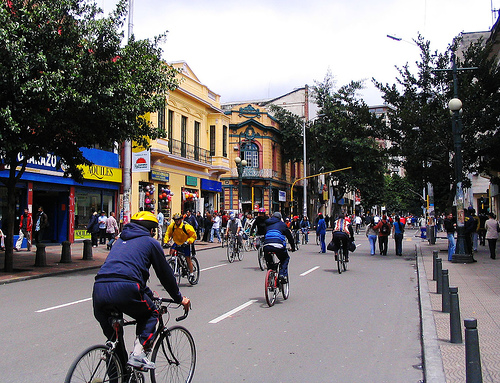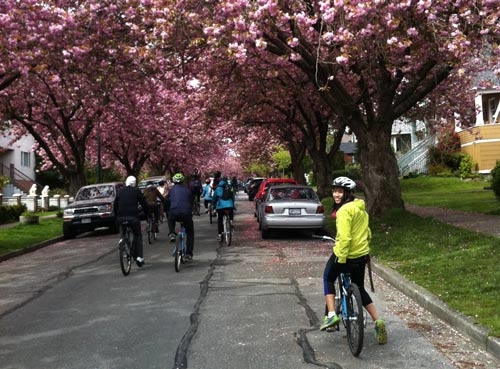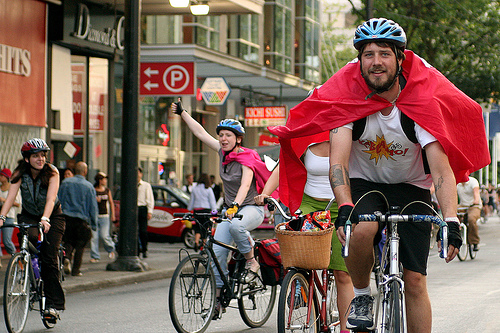Green thinking in cities, Part 4: Bogota
 Ciclovia in Bogotà, Colombia. (Photo by themikebot via Flickr)
Ciclovia in Bogotà, Colombia. (Photo by themikebot via Flickr)Last night I wrote about Curitiba, Brazil and mentioned how their BRT system inspired Bogotà, Colombia. In its turn, Bogotà has been inspiring other cities internationally with the extent to which it has taken its famous ciclovia (literally “bike path”) concept and run — or rather, cycled — with it.
Where Vancouver has its Car Free Day festival annually in four neighbourhoods, Bogotà has embraced a weekly car-free day that stretches far beyond Vancouver’s space.
Every Sunday and holiday from 7 a.m. to 2 p.m., Bogota, Colombia closes off — or, rather, opens up — more than 70 miles [100 km] of city streets. Closed, that is, to cars and open to bicyclists, skaters, walkers, and mass aerobics. When that happens, 1.5 million people come out to enjoy the safety, community, and exercise that a seemingly car-free city allows. According to many participants, the Ciclovi a has transformed life in the city all around for the better. People feel happier, healthier, and more united. — Streetswiki
Ciclovia days are “combined with Recreovia … a program of free public exercise activities in parks and other car-free areas … led by professionals who are paid by the city and accompanied by festive music.” Sounds like awesome fun! We can close our streets to cars and open them to people if everyone gets into this type of event together. At minimum I’d want to see Granville Street do this every Sunday. Playing street hockey and tossing a frisbee in the street is way more fun and useful than driving on it, wouldn’t you say? Bogotàns certainly agree.
 This daily green blog challenge is in celebration of David Suzuki’s 75th birthday, supporting the David Suzuki Foundation. Please help me out by sponsoring me online now.
This daily green blog challenge is in celebration of David Suzuki’s 75th birthday, supporting the David Suzuki Foundation. Please help me out by sponsoring me online now.
Note: I am writing solely on my own behalf, and do not claim to represent the David Suzuki Foundation or its views here.


